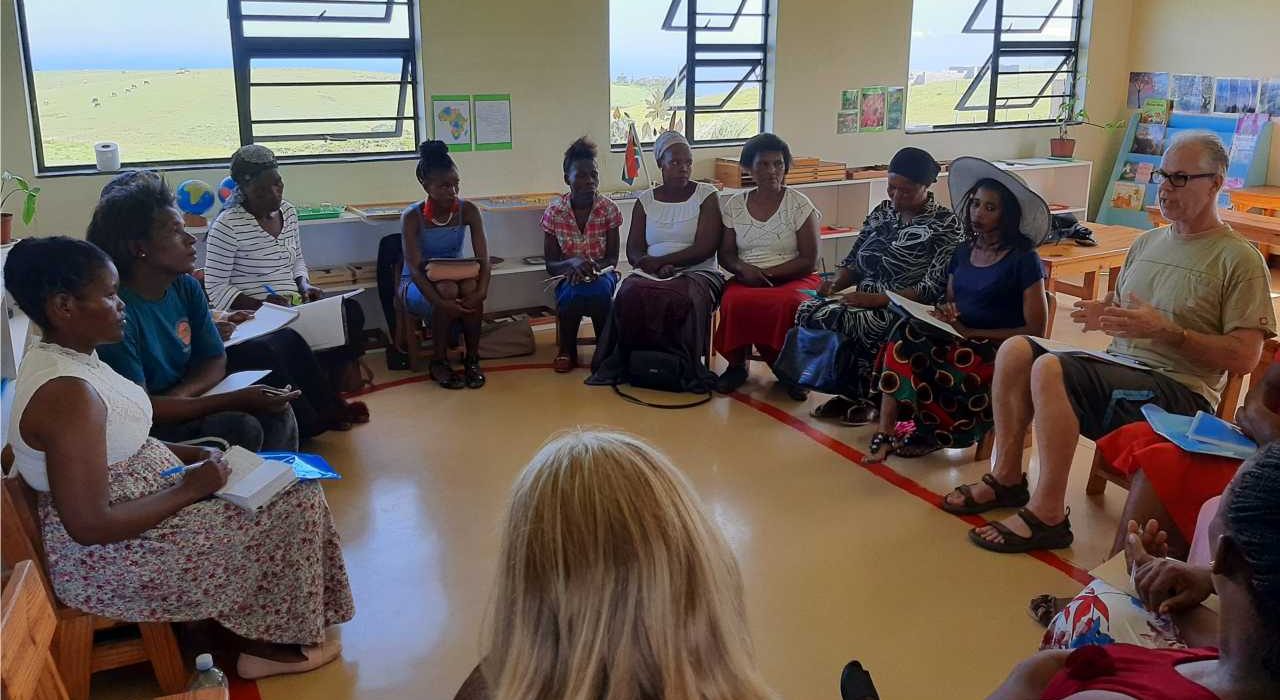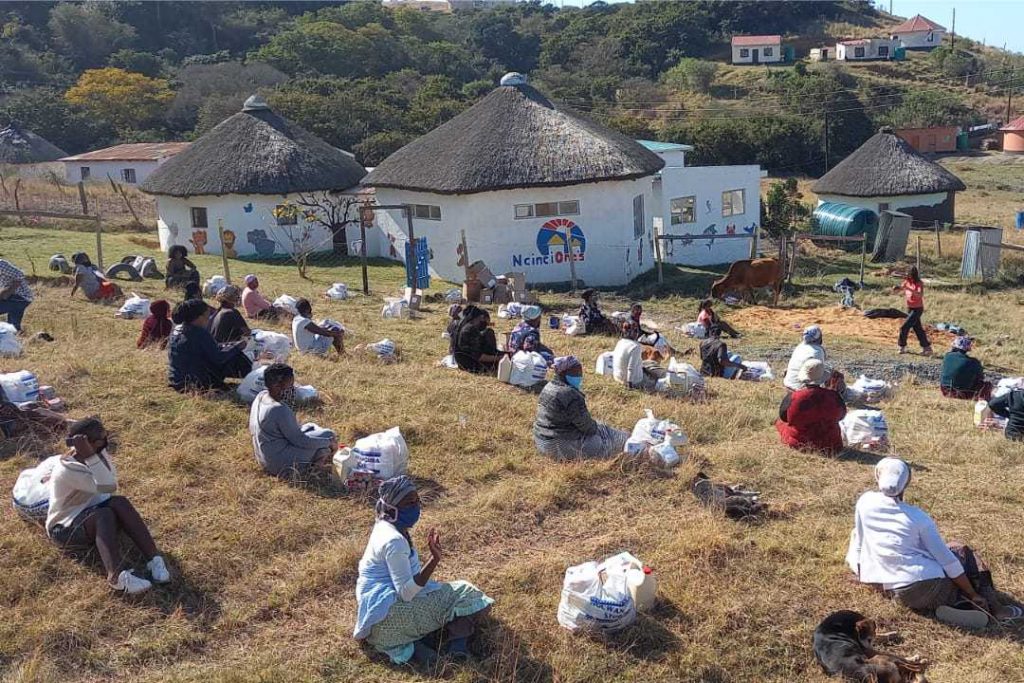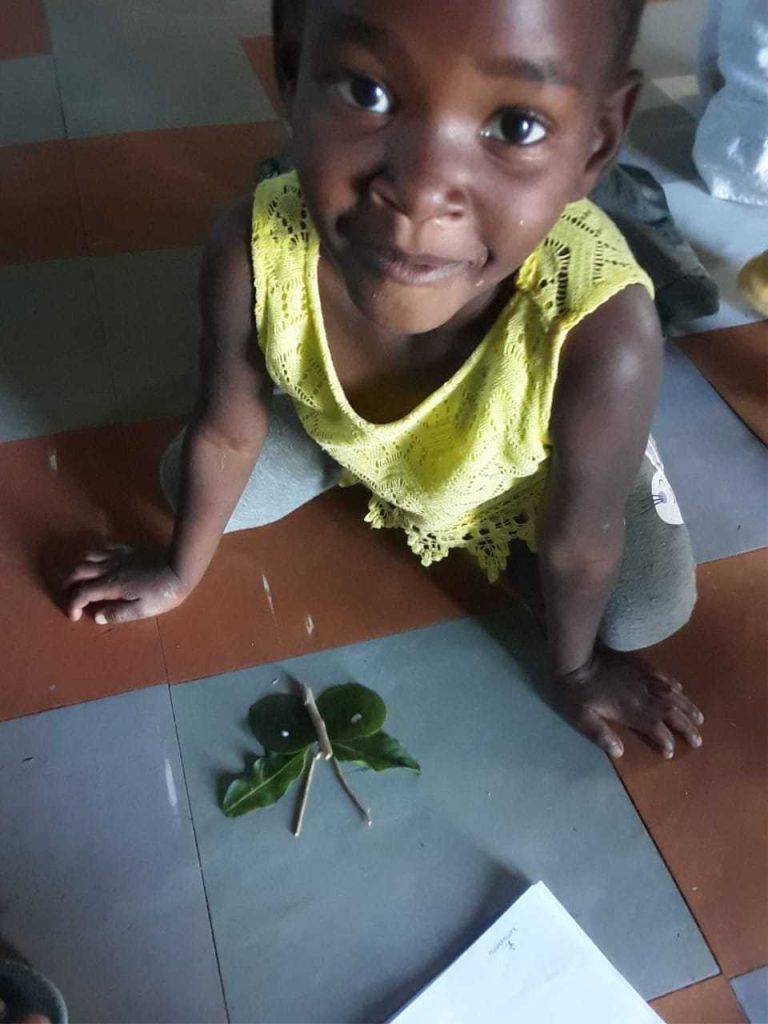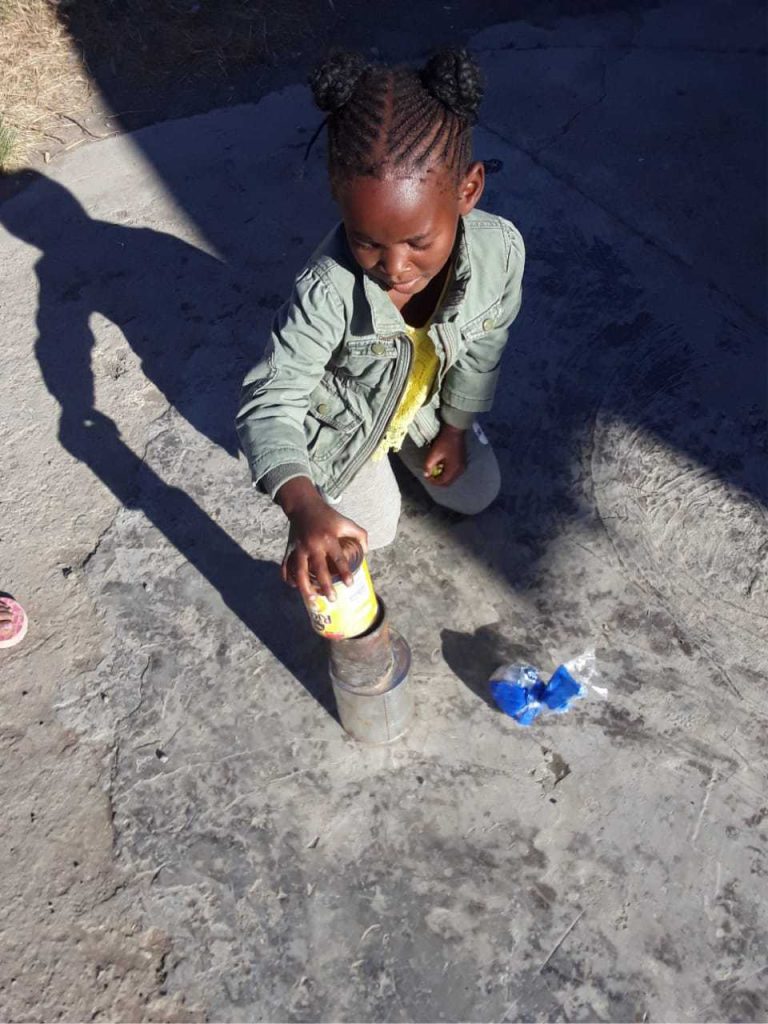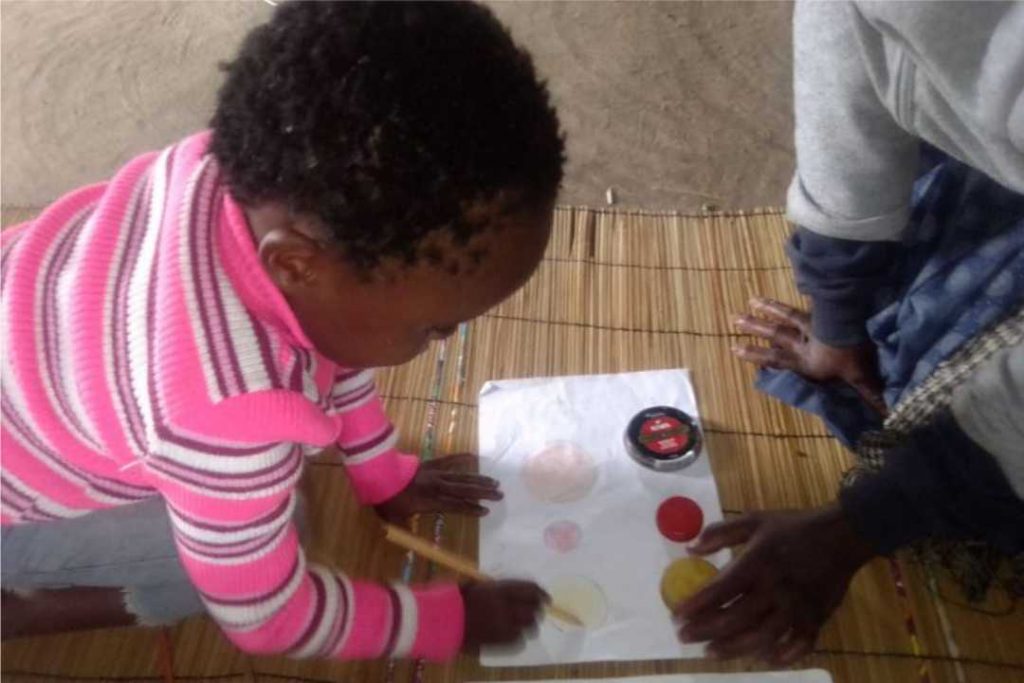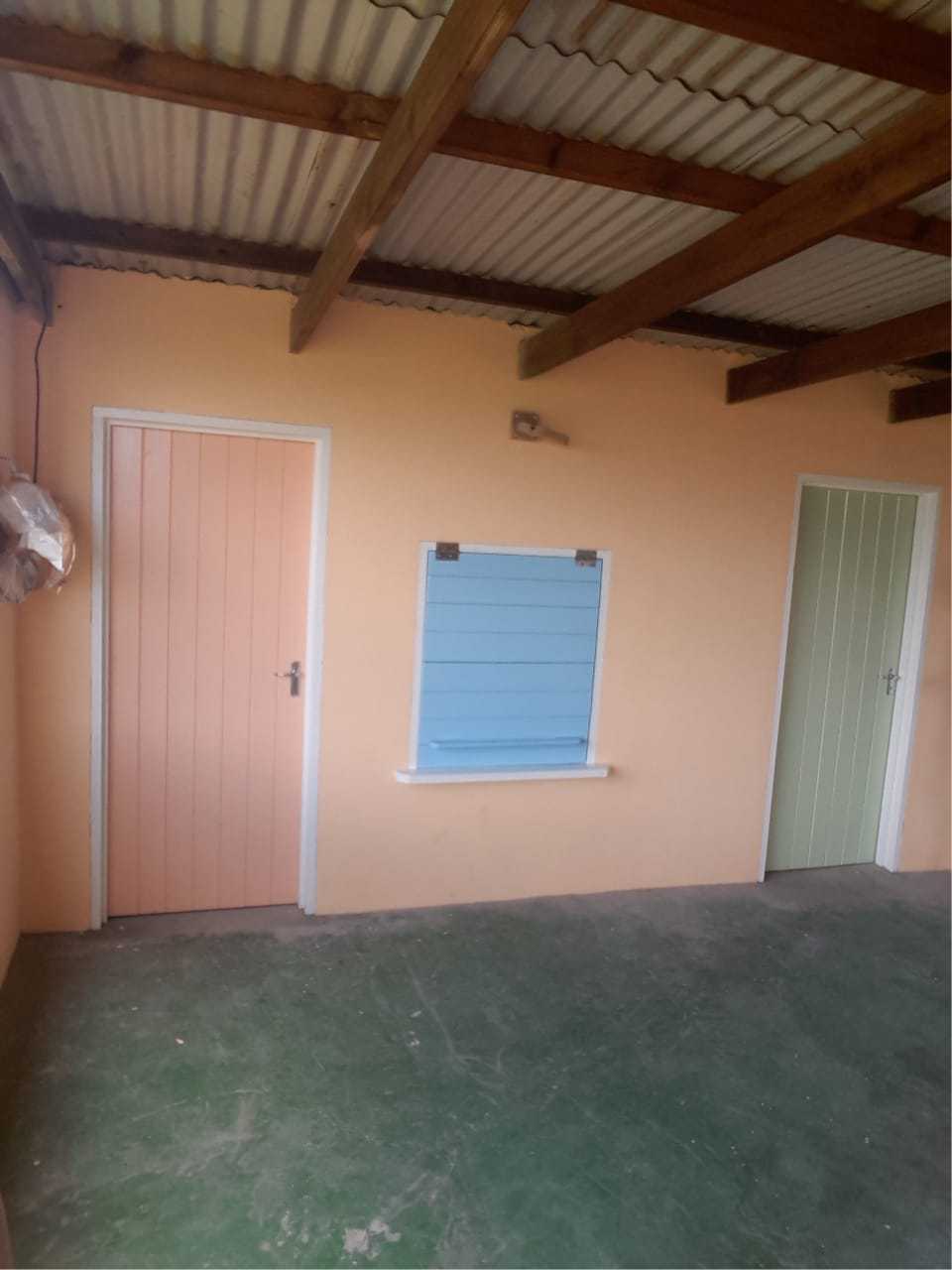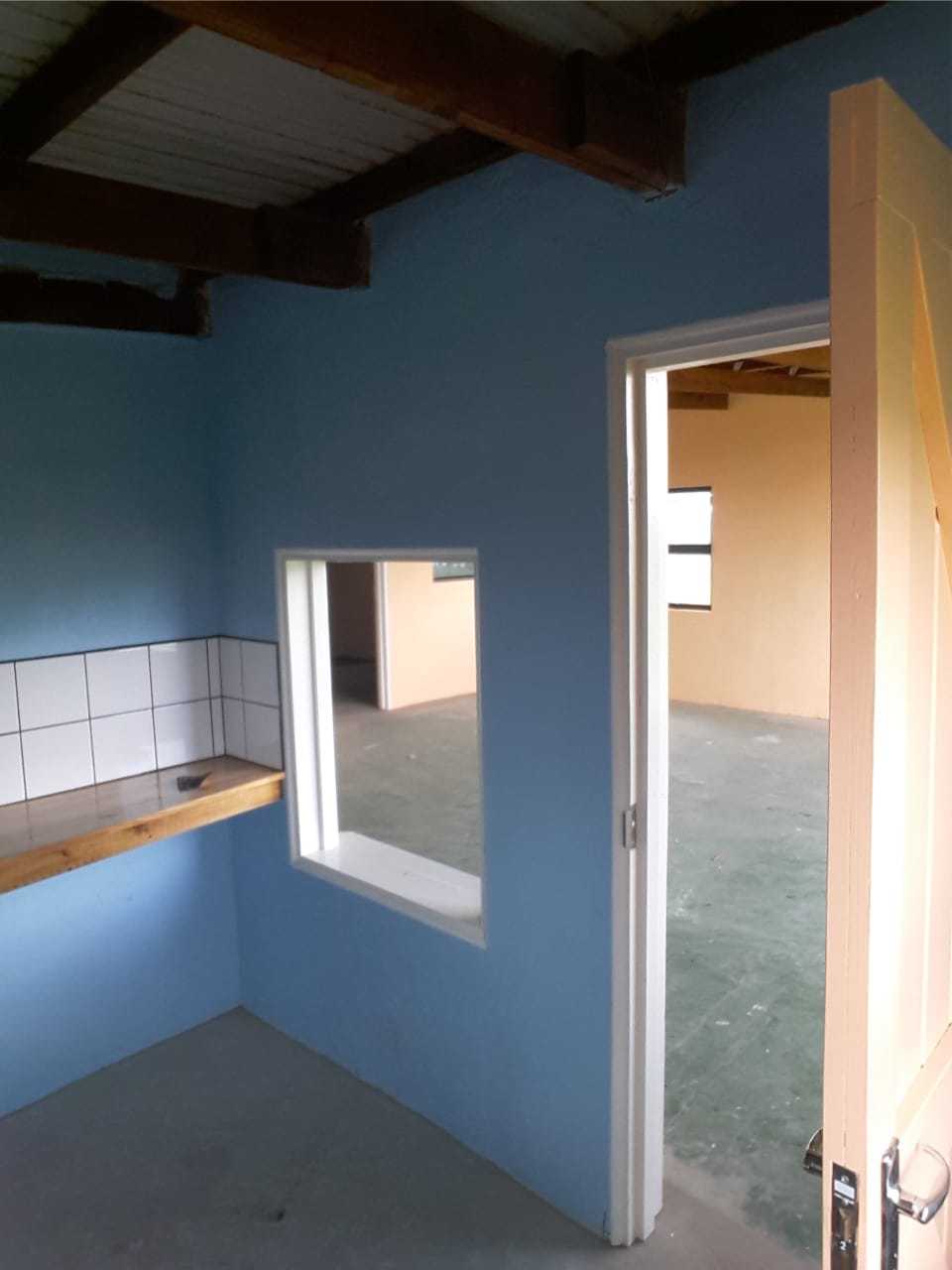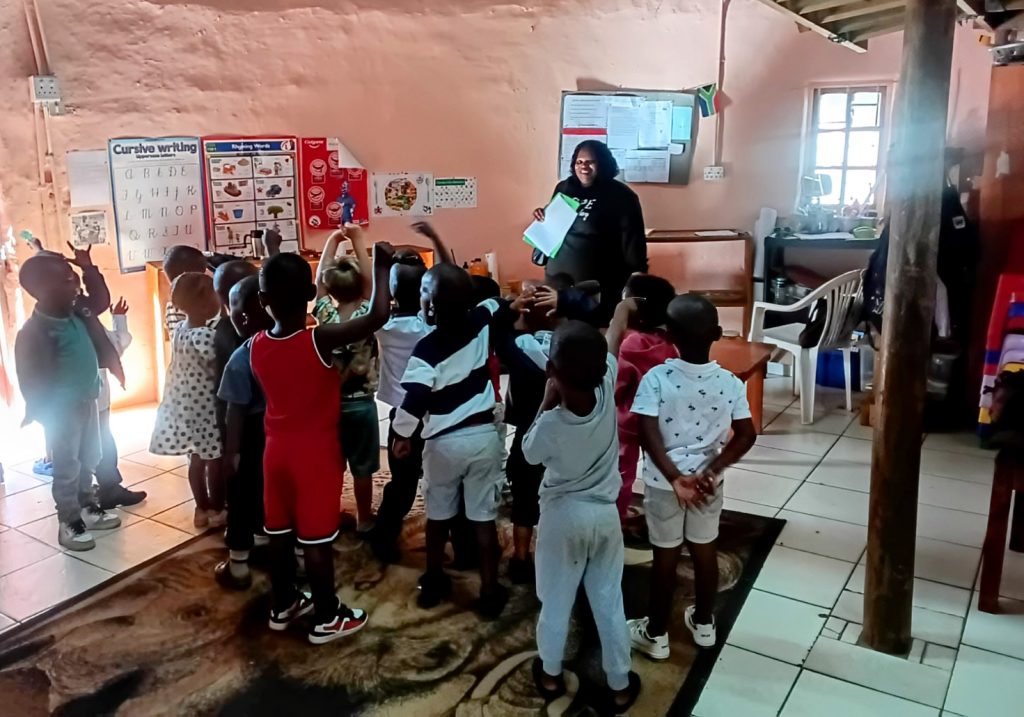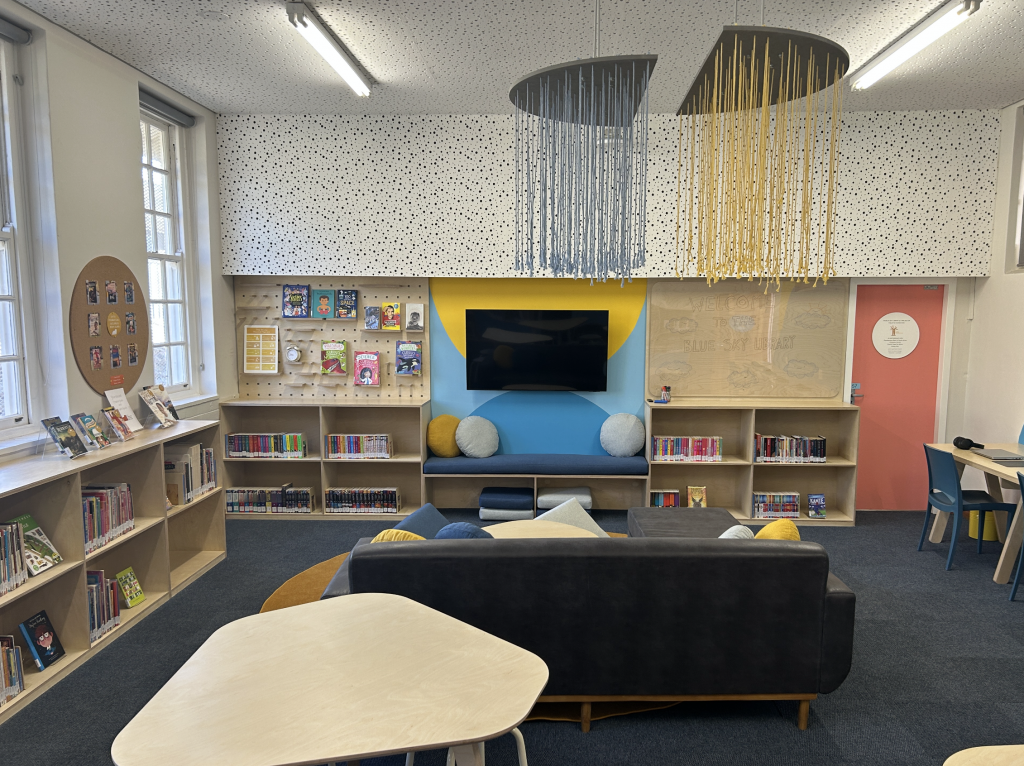The start of the pandemic
Happily unaware of how events this year were going to unfold, things got off to a good start in February. Our programme co-ordinator, Dawn Brochenin, visited each of the 5 schools in the network to do observations and offer support and advice to the teachers. Parents and school board members attended workshops, 15 teachers attended a refresher discussion on the importance of the prepared classroom and maintenance of materials. Skip forward a few weeks and suddenly a very different world faced us, with instructions from the President that all schools should be closed and every man, woman and child to stay at home.
Soon word trickled in that things were not alright in the homes. With parents and caregivers facing added economic instability, food security and the physical health and general well-being of the children became a growing issue. Yes, the children were missing out on their cognitive progress, but more importantly, they no longer benefitted from the two meals the schools provide daily, critical in ensuring the children get the nutrition they need for healthy brain and body development. A coordinated and safe roll-out of food packages needed to be implemented with the greatest urgency.
Above: Parents receiving food parcels
More than just an education
Everyone leaped into action! Kamvalethu sent additional funding for food and hygiene parcels to be distributed to the households in May. As First Children, we repurposed funds to do the same in June and the Maitri Trust provided a substantial grant through Kamvalethu for vital relief to continue this support through to December 2020. This reached 185 families at the 5 schools in our network. The food and hygiene parcels contained staples as well as tinned and fresh produce, with hygiene products like Dettol, soap, toilet paper and locally made face masks. At each of the monthly drops the parents have expressed, over and over again, the difference this has made to their families.
Above: Children using the “Masifunde” learning booklets
The effects of the school closures go beyond just the loss in ‘learning time’. Schools are often the primary source of structure and socialisation for children. Calm and collected parents or caregivers can help children be calm and feel safe. Practically, schedules and routine can offer some semblance of stability in an otherwise ‘abnormal’ time. So a significant contribution was the monthly educational package that went out to each family, consisting of stationery supplies, chalk boards, balls and beanbags, isiXhosa story books, posters and the isiXhosa ‘Masifunde’ booklet, full of ideas and activities for the parents to do with their children at home. One of our community activators, Nomonde Majongozi, spent time working through the booklet with the parent groups, explaining the activities and their developmental benefits, thus enlightening the adults as well. Both the children and mamas have enjoyed this immensely and it has been heart-warming to hear how they have engaged and interacted with each other.
Upgraded facilities
The schools being closed gave the opportunity for much-needed building work to upgrade facilities at the Ngoko school. A team of builders spent 3 months on site, replacing windows, building toilets, upgrading the kitchen and creating a covered area as an indoor/outdoor classroom. The community are highly impressed and have agreed to raise the fees which will support the school’s financial needs. We are looking forward to seeing the finishing touches, and the classroom prepared for the start of the new year.
Above: The beautiful new facilities at Ngoko
An attempt at the ‘new normal’
With the lifting of restrictions, the schools were also supplied with the cleaning and monitoring equipment needed before welcoming children back to the classroom. They opened at the beginning of September, firstly with just the oldest groups of children, allowing the teachers to focus on the children’s skills needed for their start in Grade 1 in 2021. There is much excitement at being able to engage with their friends, teachers and the learning materials again.
The impact of the pandemic will be talked about for generations to come. For many, the impact has been traumatic, often with the youngest among us being the hardest hit. We are so thankful to everyone in the Wild Coast schools network who pulled together, gave their heart and energy and level best to ease the negative impact for the families of the children closest to us. Perhaps, for them, the memories will be of a supportive community, caring individuals and a sense of hope and trust.
